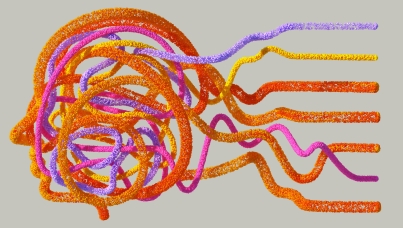Election Fraud Concerns For Two In Five British Adults
In a study for fraud and IT specialist Detica conducted by MORI , two in five (39%) British adults say they are concerned about electoral fraud. Almost six in 10 (58%) say they believe that the introduction of identity cards would make electoral fraud harder to commit.
The survey also explored attitudes towards alternative methods of voting such as by text on a mobile phone, or by email. Seven in 10 report that they are aware of the Government's recent experiments with alternative ways of voting. But while between a third and a half of British adults say that each of a number new ways of voting would make no difference to their likelihood to vote, over half sees each of the methods* as making electoral fraud easier to commit.
18-34 year olds are the section of the population that has the largest proportion who are positive towards new voting methods. Between four in 10 and half say that the alternative voting methods* would make them more likely to vote, including voting via a dedicated website (51%), voting by email (47%), and voting by text on a mobile phone (45%).
* except voting at a polling station using a touch screen computer
Technical Details
MORI, commissioned by Detica, interviewed a nationally representative sample of 963 adults, aged 18+, across Britain, between 25-28 February 2005. Interviews were conducted by telephone. No incentives were offered to respondents. Data have been weighted to match the known population profile.
Topline Results
- MORI interviewed 963 British adults, aged 18+, by telephone
- Interviews were conducted between 25-28 February 2005
- Results are based on all respondents, unless otherwise stated
- Data are weighted to the known population profile
- An (*) indicates a finding of less than 0.5%, but greater than zero
- Where results do not add up to 100, this may be due to multiple responses, computer rounding or the exclusion of don't knows/not stateds
Q1 How concerned, if at all, are you about electoral fraud - that is fraud relating to elections and voting - in Great Britain? Are you very concerned, fairly concerned, not very concerned or not at all concerned?
| % | |
|---|---|
| Very concerned | 17 |
| Fairly concerned | 22 |
| Not very concerned | 34 |
| Not at all concerned | 25 |
| Don't know | 2 |
Q2a At the moment, you are not required to show any proof of identity when you turn up to vote at a polling station for an election in Britain. If the Government were to introduce compulsory identity cards, do you think this would make electoral fraud easier to commit or harder to commit, or do you think it would not make any difference?
Q2b If the Government were to introduce compulsory identity cards, do you think this would make electoral fraud easier to commit or harder to commit in Great Britain, or do you think it would not make any difference?
| Q2a | Q2b | Q2a/b | |
|---|---|---|---|
| Base: | (479) | (484) | |
| % | % | % | |
| Make electoral fraud easier to commit | 7 | 7 | 7 |
| Make electoral fraud harder to commit | 66 | 49 | 58 |
| Not make any difference | 25 | 41 | 33 |
| Don't know | 2 | 3 | 3 |
Q3 Do you think the introduction of compulsory identity cards would make it quicker and easier or slower and more difficult to vote at a polling station, or would it not make a difference?
| % | |
|---|---|
| Make voting quicker and easier | 31 |
| Make voting slower and more difficult | 17 |
| Not make a difference | 48 |
| Don't know | 3 |
Q5 Over the past few years the Government has been experimenting with allowing people to vote at elections using methods other than just at a polling station. These experiments have included allowing people to vote using their mobile phone, and sending everyone a ballot paper in the post rather than using polling stations. Before this interview, were you aware of any of these experiments or not?
| % | |
|---|---|
| Yes, aware | 70 |
| Not, not aware | 30 |
| Don't know | * |
Q6-11 I am going to read out a number of different ways in which people might be able to vote at future elections in Britain. For each one, would you personally be more likely to vote or less likely to vote, or would it not make any difference, if you had a choice in voting in this way as well as voting in the same way as happens now?
| More likely to vote | Less likely to vote | Not make any difference | Don't know | |
|---|---|---|---|---|
| % | % | % | % | |
| Q6 Voting by post | 35 | 24 | 41 | 1 |
| Q7 Voting by text message on a mobile phone | 25 | 40 | 33 | 2 |
| Q8 Voting by email | 30 | 34 | 35 | 1 |
| Q9 Voting by logging on to a dedicated voting website | 32 | 32 | 35 | 1 |
| Q10 Voting at a polling station using a touch screen computer | 32 | 16 | 51 | 1 |
| Q11 Voting by television at home using a digital or satellite TV (i.e. pressing a red button on your remote control) | 30 | 33 | 36 | 1 |
Q12-17 For each of the following ways in which you might be able to vote in the future, please tell me whether you think giving people the choice to vote this way would make it easier to commit electoral fraud, harder to commit electoral fraud, or not make any difference?
| Make it easier to commit electoral fraud | Make it harder to commit electoral fraud | Not make any difference | Don't know | |
|---|---|---|---|---|
| % | % | % | % | |
| Q12 Voting by post | 54 | 17 | 27 | 2 |
| Q13 Voting by text message on a mobile phone | 74 | 8 | 14 | 5 |
| Q14 Voting by email | 66 | 11 | 18 | 5 |
| Q15 Voting by logging on to a dedicated voting website | 55 | 18 | 22 | 6 |
| Q16 Voting at a polling station using a touch screen computer | 20 | 32 | 43 | 5 |
| Q17 Voting by television at home using a digital or satellite TV (i.e. pressing a red button on your remote control) | 64 | 13 | 17 | 5 |



